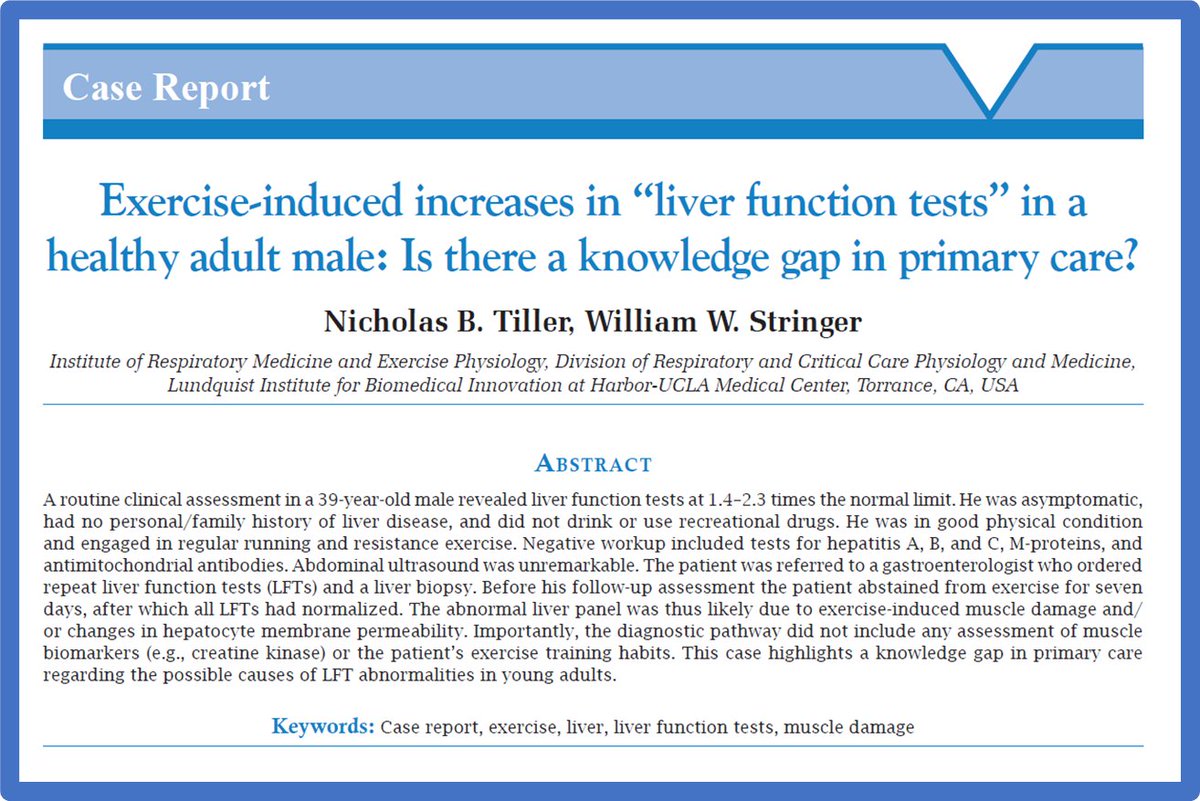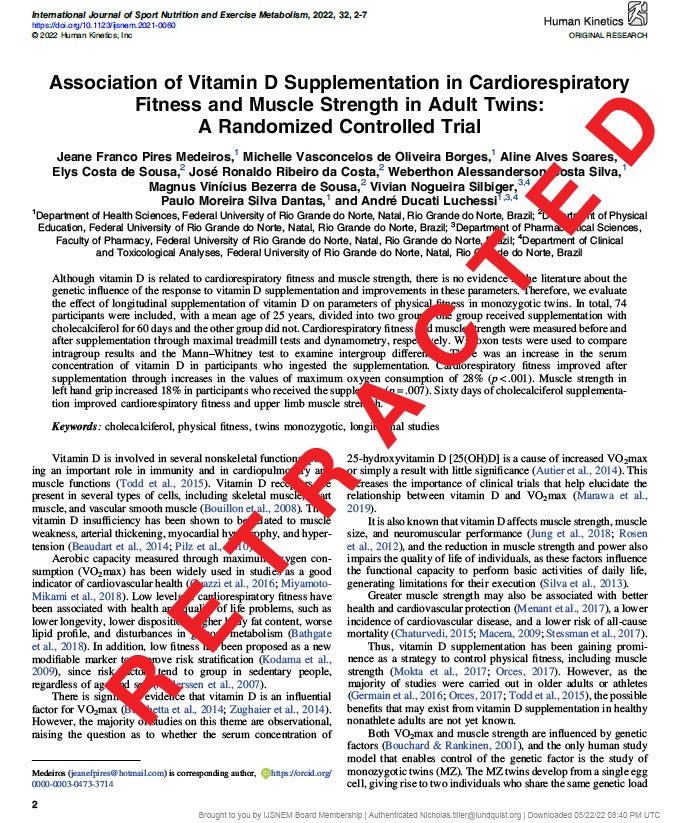
Our new case study highlights why it's important for physicians to better understand the body's response to #exercise #training. 🧵1/5
🔓journals.lww.com/jfmpc/Fulltext… #medicine #liver #physiology @theliverdr
🔓journals.lww.com/jfmpc/Fulltext… #medicine #liver #physiology @theliverdr

In Oct 2021, I had a routine blood test that revealed elevated liver enzymes. A later blood test with a different doctor showed the liver panel was "elevated and worsening", more than double the normal range for some variables. 2/5 

A series of additional tests, including abdominal ultrasound, were negative. Physician referred me to a gastroenterologist who suggested (an invasive) liver biopsy. However, before the next blood test, I stopped exercising for 7 days. 3/5
Values basically normalized, suggesting the elevated "liver panel" was the result of exercise-induced muscle damage and/or increased hepatocyte membrane permeability. Remember, ALT and AST have an important role in Krebs, not just in "liver function" 4/5 

Importantly, none of the doctors assessed muscle function (e.g., CK) or enquired about my exercise training habits. "Such omissions in the diagnostic pathway can result in the misdiagnosis of liver problems and unnecessary follow‑up tests and referrals." 5/5
END.
END.

• • •
Missing some Tweet in this thread? You can try to
force a refresh












